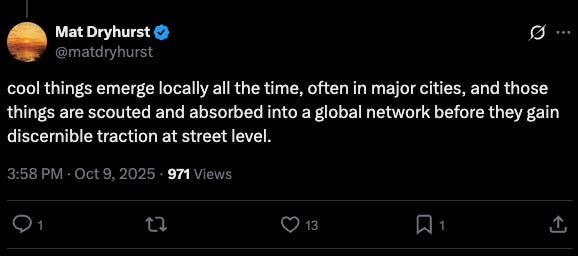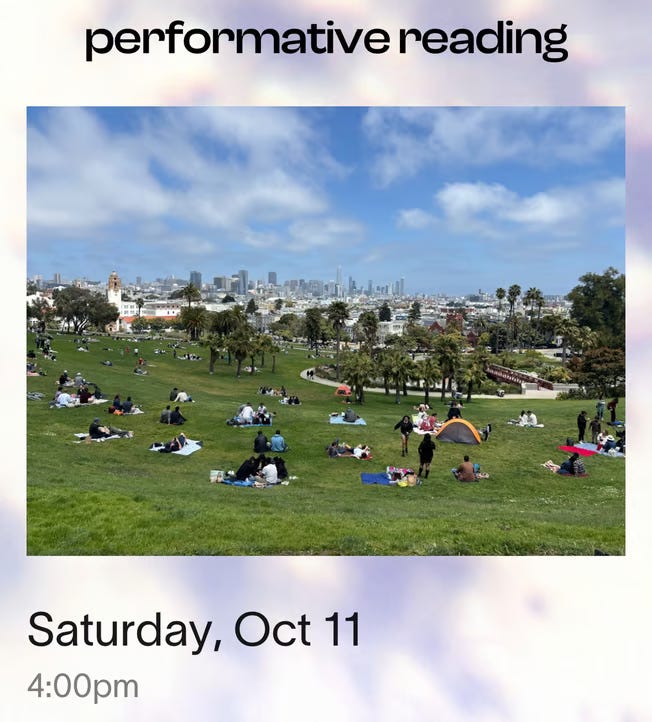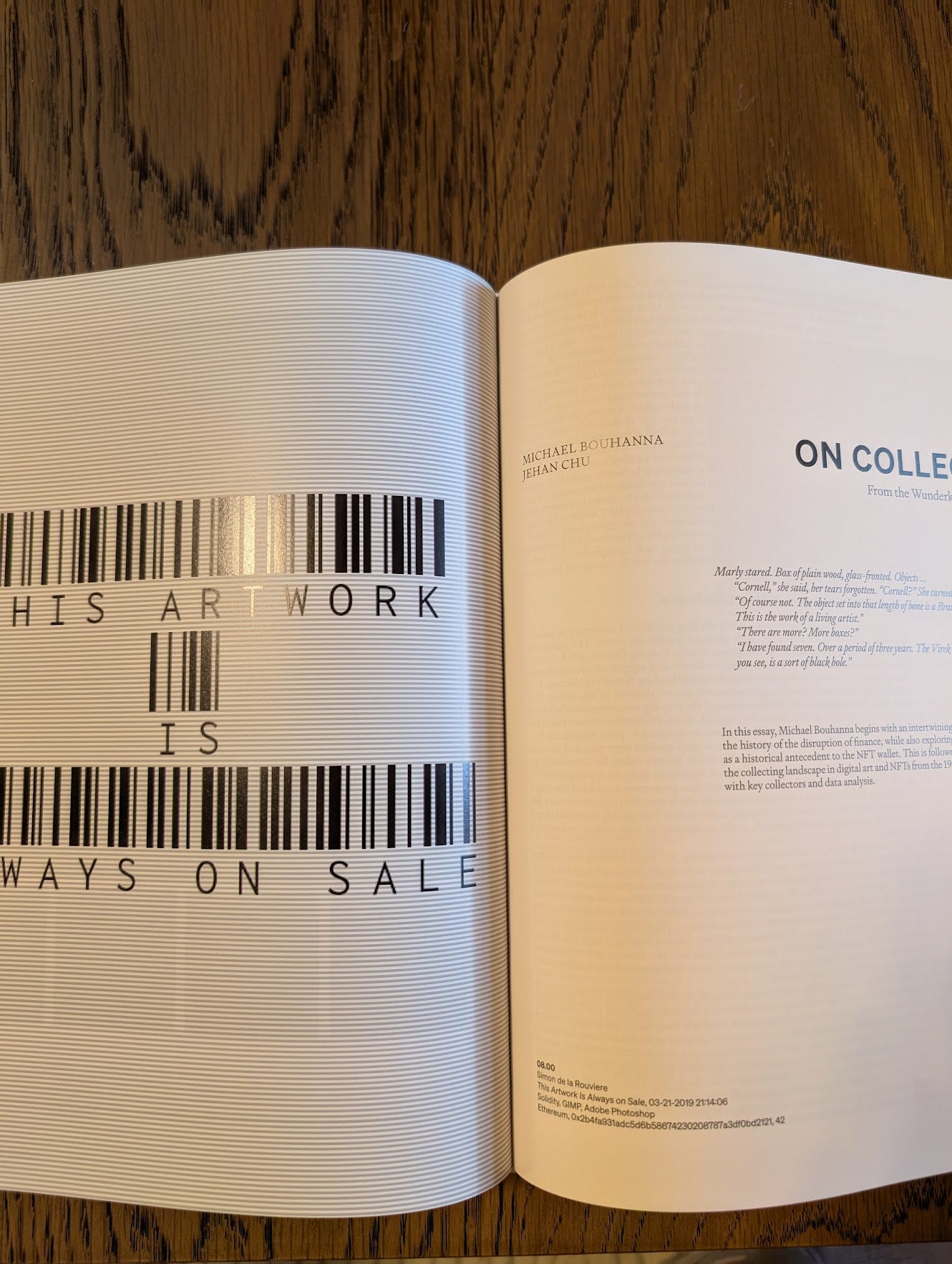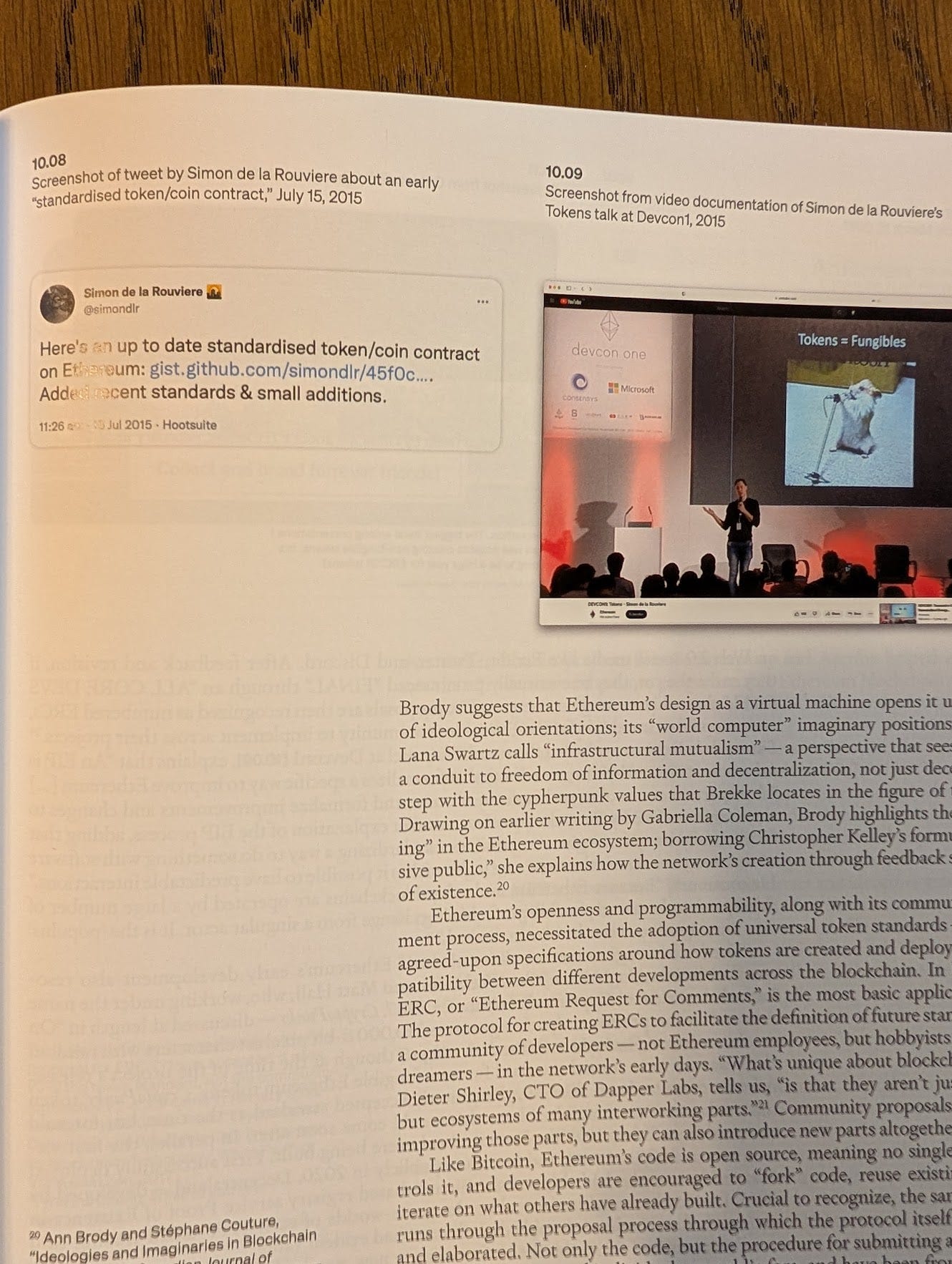Sunday Edition #19 - On The Crisis of Cool
Also: Meditation, Gambling, and Jadu Heart
Welcome to the Sunday Edition where I share interesting articles and links alongside what I’ve been up to!
The Crisis of Cool
Chris Marino has a really interesting article on what’s perceived as the “crisis of cool” especially as it pertains to New York City’s position as a driver of culture (and coolness). Notably, it’s pointed out that the performance takes precedence over the art.
A defining characteristic of 2020s New York culture is that the performance of being an artist has taken precedence over the production of art. The ingenuity of contemporary artists, their capacity for imagination, mystery, and style, is channeled into the creation of appearances, vibes, and happenings, of suggested bohemian worlds, rather than the fabrication of free-standing works of visual, literary, or musical art.
In part driven by screen-mediated connection (+ the algorithm), the individual becomes the following:
What emerges is the strange condition of being both highly socialized and starkly atomized, of having extensive contact with the lifestyles and judgments of others while spending more time alone with a screen. Connected everywhere but belonging nowhere, and receiving only the vaguest and lowest-intensity of feedback from others – the like, the repost, the fire-emoji comment – the networked individual is beset by anxiety and status-insecurity. Propelled by a desire for recognition and inclusion, she plunges ever-deeper into the digital social immersion, her behavior becoming increasingly mimetic, conformist, and approval-seeking, responsive to rapidly-evolving norms of expression dictated by the screen.
Mat has slight rebuttal that “coolness” isn’t gone, it’s simply moved elsewhere.
The visible affectations of coolness isn’t necessarily visible anymore. But, I do believe that we’ll likely see *some* return to localized and physical coolness because of what Chris writes about.
This separation is essential to the production of networked society: it elicits abundant streams of digital representations, flowing above and beyond the individuals who produce them, which are channeled through networked distribution platforms, and presented using engagement-optimizing algorithms. Social cohesion is achieved through the widespread willingness to compete for attention within this system, to chase the rewards of influence, status, and notoriety. And as the networked individual follows the continuous compulsion to broadcast herself onto digital platforms, ‘identity’ migrates beyond the confines of her body and consciousness, becoming an autonomous composite of externalized images, gestures, thought-fragments, and affiliations, divorced from the lived realities of the self.
This kind of behaviour is not self-sustainable, especially when the digital spaces often turn against the individual (like changing features, moving to new platforms, governments potentially shutting it down, changing the algorithm, etc). It’s easier to keep and maintain an offline relationship versus a digital-only one. Digital will retreat to being a destination again, not *everything*.
You see it in people starting to switch off. And, younger generations are trying to pierce through perceived cringeness by attaching “performative” to previously sincere activities.
I agree with David. Offline will become cool again. But it won’t look like pre-web coolness either.
Simulated Gambling and Culture
I really enjoyed Sachin take on gambling. In the past few years, not only in the US, gambling has increased quite rapidly with not-so-great results in some instances.
But, gambling has different appeals in different histories and cultures.
First, Sachin quotes McLuhan:
Alcohol and gambling have very different meanings in different cultures. In our intensely individualist and fragmented Western world, ‘booze’ is a social bond and a means of festive involvement. By contrast, in closely knit tribal society, ‘booze’ is destructive of all social pattern and is even used as a means to mystical experience.
In tribal societies, gambling, on the other hand, is a welcome avenue of entrepreneurial effort and individual initiative. Carried into an individualist society, the same gambling games and sweepstakes seem to threaten the whole social order. Gambling pushes individual initiative to the point of mocking the individualist social structure. The tribal virtue is the capitalist vice
…and then synthesizes it:
Read together, Geertz and McLuhan suggest that the meaning of gambling shifts with the structure of society itself. In tribal settings, it affirms collective bonds and entrepreneurial initiative. In individualist societies, the same practice turns inside out. Gambling becomes entrepreneurial risk-taking stripped of its legitimizing narratives around productivity and the Protestant work ethic.
I agree. I think what’s different in modern gambling (extended to meme markets in regular stocks to crypto memecoins to prediction markets), is that it’s far more social than previous iterations of it in western societies. Gambling has *also* become a conversation. I’m not sure if that’s good or bad. But, I think it at least points to something one might consider if future regulations might want to claw back against excess.
Four Major US Cities
A few months back there was discussion on social media on what’s the four main US cities. The controversy about it, was that it felt obvious what the top 3 is: NYC, Chicago, LA. But the 4th one was always one where people argued about it.
CityNerd’s own ranking is great.
The tl;dw is that 4 + 5, closely, is San Francisco and the DMV (DC+Baltimore).
What I’m Up To
✍️ Writing - Novel #2 Revisions
Proceeding at pace. Although, still unsure to what extent I’ll be able to finish a revision in October. And secondly, I’m actually cutting more than I anticipated, which is also not a good trend, especially when I’m seeking to go through traditional publishing.
🖼️ Art - Robert Alice and Taschen’s On NFTs
Received my copy of On NFTs and really proud to see “This Artwork Is Always On Sale” being featured. I really want to get back into my art practice (and coding for that matter). Hoping to do so once my novel is done!
🕹 Gaming - Hades 2
Still really enjoying it! :)
🧘 Meditation - Sam Harris Waking Up
I’ve dabbled here and there with meditation over the years, but wanted to take it back up. Started again with Sam Harris’ introductory Waking Up course and have been deeply enjoying it the past month. Want to focus on adding in daily mindfulness practice to quiet my lifelong restlessness.
📚 Reading - Michael Singer - Surrender Experiment
Given my foray back into meditation, I was recommended this book on Michael Singer’s life. I enjoyed reading about his story, especially as it pertains to managing a spiritual practice at the time around the early computer boom. It’s inspiring. Although, admittedly, the key focus of the book, to surrender to life’s flow, feels quite peak survivor bias. In many instances things worked out really well for him. Or he points out coincidences (like finding the person who gave him a loan years later and realising that they now needed a loan and he could help him). My own synthesis is that there is value to “surrendering”, if only to become less attached to desiring things work out in a really specific way. It’s not an uncommon sentiment in a lot of spiritual practice (like, in Christianity, trust God that he has plans for you). This book is for you: if enjoy reading about someone’s life that’s in part a journey into the inner world, but also about the external struggle of building multi-billion IT companies at the turn of the century. It’s unconventional and thus a great life story.
🏃 Running - Longest Run
Did my longest ever run this weekend. All a trail run. 23km with 544m elevation. Really great experience and feeling quite fine. All in preparation for UTCT in November. Still struggling to imagine how the hell I should train for 2000m of elevation without simply just getting on a (boring) stairmaster. 😅
🎶 Listening - Jadu Heart - U
My kind of chord progression. Love it. Another dreamy track. Enjoy!
That’s it for this Sunday, friends. Hope you get to see a lovely sunset.
Simon







